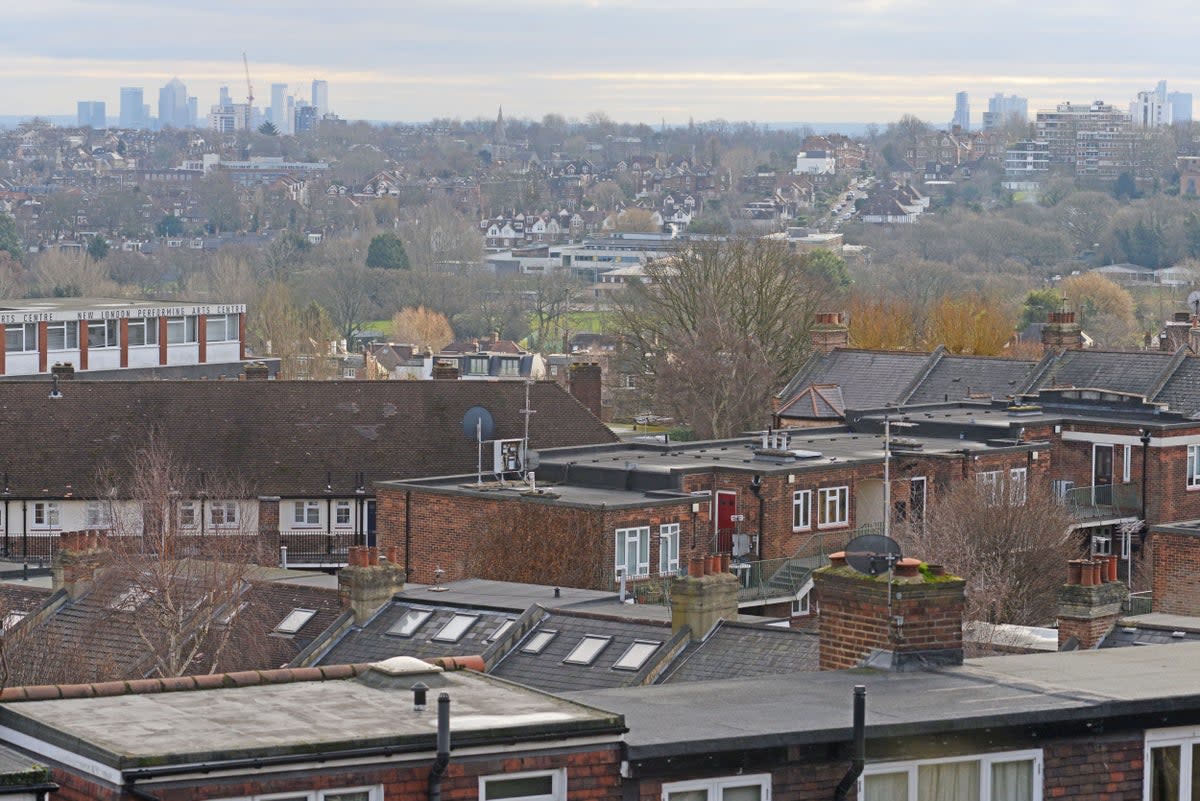London rental crisis: tenants who complain about disrepair almost twice as likely to be evicted

The vast majority of Londonrenters have experienced disrepair in the last year, but are afraid that they will be evicted if they raise problems with landlords.
New research from Shelter has revealed that 81 per cent of private renters in the capital —equivalent to almost 1.5 million people— have had issues with their accommodation in the last year.
Damp or mould is the most common complaint, faced by more than half of renters. 37 per cent had problems with their hot water or heating and 18 per cent have experienced electrical hazards or carbon monoxide, smoke or fire alarms not working.
An estimated 430,000 London tenants —24 per cent of private renters in the capital— feel afraid to ask their landlords for repairs, fearing that they will be evicted as a consequence.
These fears were also proven to be justified. Shelter’s research found that private renters in London who complained to their landlords, letting agents or local council over the past three years were nearly twice as likely (89 per cent) to have been evicted or received an eviction notice than those who had not raised any issues.
The situation is even worse across England, where renters were two and a half times (159 per cent) more likely to be evicted.
Shelter’s data is based on a YouGov survey of more than 2,000 renting adults, 398 of whom were in London. The results were weighted to represent private renters, using data from the English Housing Survey.
"By dragging its heels on the Renters Reform Bill, the government has left private renters in London in a terrible catch 22 – they either shut up and put up with disrepair, or risk being evicted in a cost of living crisis,” said Polly Neate, Chief Executive of Shelter.
“Day in, day out Shelter hears from people who are forking out huge sums on rent while living in nightmarish conditions because private renting is woefully under-regulated. It is a travesty that so many private renters are too afraid to complain about the mould growing all over their kids’ clothes, or the water pouring in through broken window frames, in case it costs them their home.”
The average asking rent in the capital has reached a record high at £2,480pcm, rising to £3,000pcm in inner London, according to Rightmove’s latest figures. Most Londoners are now spending more than half their wages on rent, with further rises predicted this year.
Shelter’s online advice pages on disrepair have been accessed every 18 seconds since the beginning of the year – a 53 per cent increase on the same period last year.
London Renters Union (LRU) is also receiving a greater number of enquiries about poor living conditions, with the threat of eviction getting worse.
“[Section 21 evictions] are always in the back of a tenant’s mind,” says Claire Poppleton, a spokesperson for LRU. “A lot of people are frightened to raise issues of disrepair with landlords because the comeback is an eviction. They’re in insecure housing.”
She adds: “On paper, there are protections for renters, but they’re flimsy. With Section 8 and Section 21 on their side, landlords yield so much power over tenants.”
As a result, Poppleton says that LRU is having to offer increasingly pragmatic advice to tenants. Whilst they suggest that tenants raise issues, they must also caution that the threat of a retaliatory Section 21 eviction is real, and that councils often lack the resources to enforce renters’ rights.
Poppleton says: “If people mention disrepair, we do have to let people know the reality of the situation. We’d advise people to open a dialogue with the landlord and give them an opportunity to sort it out in reasonable time, but also to be mindful that landlords know that there is a housing crisis as well. If you complain, there can be a comeback [in the form of an eviction].”

This was Chiara’s experience when she complained to her landlord. She, her husband Ben and her three-year-old daughter Maggie had been living with severe damp and mould in the flat they were renting in Leyton.
After receiving a 25 per cent rent increase on Christmas Eve, she decided to write to her landlord to request repairs. They denied any responsibility for the repair or damage and responded with a Section 21 eviction notice.
“Even before the Section 21, we’d spend a lot of time at the library, church, or cafes, just so we didn’t have to worry about Maggie being in the damp and cold,” said Chiara.
“I was up all night looking online for properties, but it’s really hard out there. Rents have massively gone up. People are so desperate they’ll consider taking a flat that’s mouldy or in disrepair just because there’s nothing else.
“There really needs to be a way of holding landlords accountable, or for there to be some sort of record so you can look and see if someone is a good landlord. The thought of this happening to us in our next place always looms over me. I pretend everything is OK in front of Maggie, but the worry of becoming homeless is making me feel ill.”
In May last year, the government committed to bring forward a Renters’ Reform Bill which would abolish Section 21 evictions and strengthen landlords’ rights of possession. It is due to be presented to parliament before the end of spring this year.
In February, Mayor of London Sadiq Khan, council leaders, trade unions and other organisations signed a letter coordinated by LRU which called on the government to freeze private rents and ban evictions by fast-tracking the bill.
“Renters are bearing the brunt of government dithering over urgently needed private rental reforms,” said Neate. “Renters can’t wait any longer, the government must urgently make its Renters’ Reform Bill law to protect tenants who call out poor conditions from unfair evictions and homelessness.”

 Yahoo News
Yahoo News 
